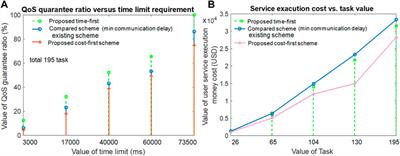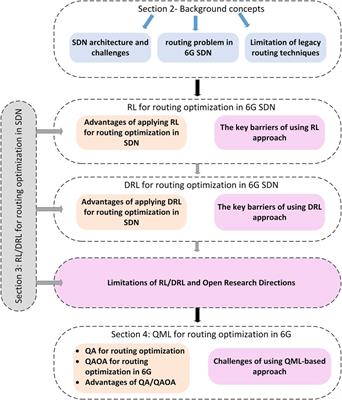ORIGINAL RESEARCH
Published on 04 Jul 2024
Accelerator: an intent-based intelligent resource-slicing scheme for SFC-based 6G application execution over SDN- and NFV-empowered zero-touch network

doi 10.3389/frcmn.2024.1385656
- 1,588 views
- 1 citation
1,449
Total downloads
7,064
Total views and downloads
ORIGINAL RESEARCH
Published on 04 Jul 2024

REVIEW
Published on 23 Nov 2023

